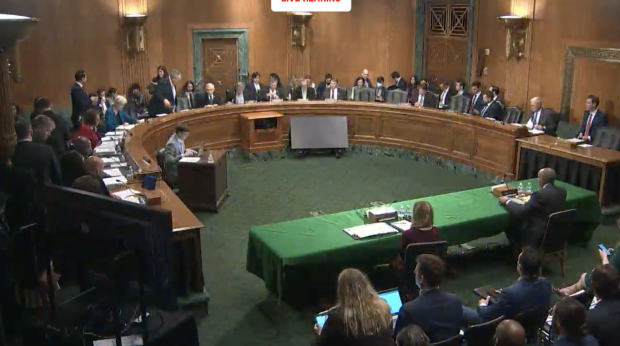
U.S. Sen. Sherrod Brown (D-Ohio) summed up the work to get the Secure and Fair Enforcement Regulation (SAFER) Banking Act passed through the Senate Committee on Banking, Housing and Urban Affairs in five words: “It’s been quite a journey.”
Committee members passed the bill with a 14-9 vote Wednesday morning. The SAFER Banking Act legislation opens banking services to marijuana businesses – an issue credit unions have struggled with for years.
The bill in its current form, which was introduced last week by a group of bipartisan senators, is an updated version of the CUNA and NAFCU-supported SAFE Banking Act, which was introduced earlier this year.
During the hearing, Sen. Brown said, “Cannabis banking is just one part of the necessary conversation about marijuana policy. There’s still much work that needs to be done.”
He added, “Cannabis policies look different in different states, but legal cannabis small businesses and their employees are running into many of the same issues. One of these issues is access to financial services.” This bill “will make it safer for legal cannabis businesses and service providers to operate to protect their workers, first and foremost, to operate in their communities.”
In a statement released after the hearing, CUNA Deputy Chief Advocacy Officer for Federal Government Affairs Jason Stverak said, “We thank the committee for moving forward on this important legislation to bring consistency and common-sense to the intersection of banking regulation and legal cannabis businesses. This bill will allow credit unions to lawfully serve these businesses and addresses the serious public safety issue of forcing these businesses to deal in only cash.”
NAFCU SVP of Government Relations Greg Mesack also released a statement, which said, “After today’s committee passage of the SAFER Banking Act, NAFCU thanks Senator Brown and members of the Senate Banking Committee for their leadership on this issue and willingness to make changes to address concerns raised by credit unions and other community financial institutions. This legislation is necessary to protect credit unions and the communities they serve in states where legal cannabis businesses are seeking financial services. It will help reduce risks by providing some legal clarity and expanding access to deposit accounts and other financial products. NAFCU looks forward to continuing the conversation as the bill moves forward to a full body vote.”
Sen. Brown said he looks forward to sending this legislation to the Senate floor. There was no timetable announced for when that might occur.
Comments
Post a Comment
Please no profanity or political comments.